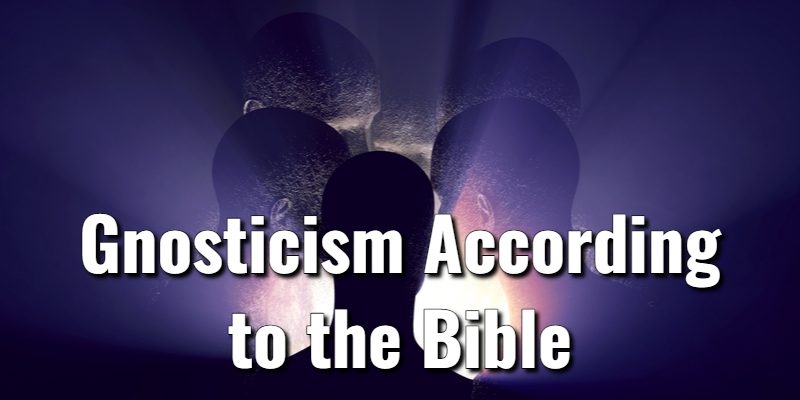End times prophecy, numerology, Bible-codes, and the like distract many souls from the truly powerful overt message of the Bible. Many of the claims of secret knowledge are utterly ridiculous. Take numerology for example, this is a system that assigns great significance to the chapters and verses of the Bible, claiming that these numbers ought to influence our understanding of the text as a sort of meta-text. The numbers are not original to the text, were not placed during the initial writing, and do not appear in the earliest manuscripts, let alone the original texts. The chapters and verses were added over a thousand years after the canon was closed during a long carriage ride for the simple purpose of making it easier to find a particular portion of the Scriptures. You can find an early form of Gnosticism in the later writings of the New Testament such as Jude and 2 Peter. It was a cult that infiltrated churches and lured some away with promises of secret knowledge. Today the lust for secret knowledge is as strong as ever and there is a whole industry ready to supply it.
You can find an early form of Gnosticism in the later writings of the New Testament such as Jude and 2 Peter. It was a cult that infiltrated churches and lured some away with promises of secret knowledge. Today the lust for secret knowledge is as strong as ever and there is a whole industry ready to supply it.
Gnosticism According to the Bible
Another example is even better: those who claim to have a means of determining the time of the second coming when the Bible very plainly says in Matthew 24:36: “But of that day and hour knoweth no man, no, not the angels of heaven, but my Father only.”
A less obvious form of modern Gnosticism simply concerns itself with theological detritus, shifting focus away from the central tenets of the Gospel and towards obscure areas of speculation. The seeker after secret knowledge loves to speculate where there is no definite knowledge so they can elevate their own ideas. This is why Paul instructs pastors not to allow certain teachers to pursue those things that lead only to speculation.
See 1 Timothy 1:3-4, 4:7, 2 Timothy 2:23, and Titus 3:9:
- 1 Timothy 1:3-4: “As I besought thee to abide still at Ephesus, when I went into Macedonia, that thou mightest charge some that they teach no other doctrine, Neither give heed to fables and endless genealogies, which minister questions, rather than godly edifying which is in faith: so do.”
- 1 Timothy 4:7: “But refuse profane and old wives’ fables, and exercise thyself rather unto godliness.”
- 2 Timothy 2:23: “But foolish and unlearned questions avoid, knowing that they do gender strifes.”
Gnostics also love to play upon the notion of continuation of prophecy in order to add to Scripture whatever they wished or to overrule it when it proved inconvenient. For this reason, Gnosticism can easily cohabitate with other false faiths, especially sensationalism, as well as aspects of the New Age movement.
It is not some secret message, but the overt message of the Bible which saves. This has been revealed to the simplest among us. Our Lord thanked for this, and so too should we. See Matthew 11:25: “At that time Jesus answered and said, I thank thee, O Father, Lord of heaven and earth, because thou hast hid these things from the wise and prudent, and hast revealed them unto babes.”
It is easy to come into some obscure knowledge and think that we have really attained something. After all, we know something so few others know. There is a certain thrill in finding ourselves in this position, in finding others coming to us to learn, in being seen as wise… But let us not forget what holy writ says about being wise in our own sight. See Proverbs 26:12: “Seest thou a man wise in his own conceit? there is more hope of a fool than of him.”
Lord's Library participates in affiliate programs. We may make a small commission from products purchased through this resource.
- God’s Daily Promise: Practical Help for Burden & Unbelief - July 22, 2024
- Views from the Branch: Following the Numbers or Following Christ? - July 15, 2024
- Who Can Preach? Explaining God’s Design for Pulpit Ministry - June 29, 2024













